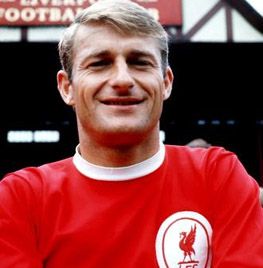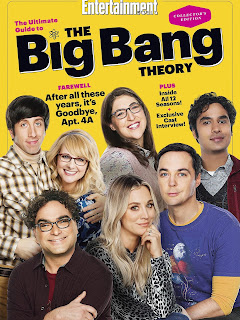To start this trilogy of blogs relating to Liverpool FC in the 1960s, I am first going with a video clip that encapsulates in a few minutes the headiness of the early years of Bill Shankly’s reign as Liverpool manager. Since his arrival at the club in December 1959, he had lifted Liverpool out of the mire of Second Division football with promotion in 1961-1962 and, on the day of this clip (April 18th, 1964), they were on the verge of winning their first Division One title since 1947. Average Anfield attendances had gone from 29,731 in 1961-1962 to over 45,000 during this title winning season and, as you can see, Beatlemania was sweeping the city and the wider world. Notwithstanding the slightly condescending and quasi-academic demeanour of the presenter, the clip captures beautifully a club and a community in the throes of footballing ecstasy. Incidentally, on the topic of Liverpool fans singing, it's generally accepted that they first started singing the Gerry and the Pacemakers hit 'You'll Never Walk Alone' some time around October 1966.
Viewing
the world through chinks of varying width
In writing about the history of Liverpool Football Club in recent months, for some reason I have started to think of how Patrick Kavanagh’s poem ‘Advent’ could have relevance to my enterprise. In one of the most memorable and epigrammatic lines of Irish poetry, Kavanagh writes in ‘Advent’: ‘Through a chink too wide there comes in no wonder’, which I take as a caution against excess and a call to the physical and spiritual benefits of the austerity of ‘dry black bread and sugarless tea’, in an effort to ‘charm back the luxury of a child’s soul’.
Patrick Kavanagh (1904-1967)
But I believe that line
about the too-wide chink can have relevance to writing and research too,
including my own writing and research about the history of Liverpool FC. Keeping
the chink narrow and focussed on the trials and tribulations of a football club
over the past thirteen decades is one way of viewing the history of the world
during that time and is, in my opinion, more satisfying and novel than widening the chink of perspective and writing about more general events in the
wider world, events already covered ad infinitum by professional writers and
historians.
Then sometimes I get a sense
of unease that, in focusing exclusively on Liverpool FC, I’m missing out on
far too much of the wider world. Helicoptering above the specific topic of
Liverpool FC in different decades and looking at wider world events is a good
way to assuage that sense of unease, although that helicoptering sometimes
yields little of interest, depending on the decade in question.
The 1960s - a special decade
No matter what the
perspective or how wide the chink, however, there was something unique and special about the 1960s
and the helicoptering process above and beyond the confines of Liverpool FC is an
irresistible temptation for that particular decade.
The view of the world outside
of football begins in Liverpool itself, with a certain local band banging out
album after album from 1963 through to 1970, a soundtrack for the decade
produced at a manic rate that was as prolific as Roger Hunt’s scoring for
Liverpool FC during the same period.
That Liverpool band...
Meanwhile in Irish sport - Tipperary win the 1965 All-Ireland title for the 4th time in 5 years - Jimmy Doyle (1939-2015) is pictured above with the Liam McCarthy cup
In the wider world, John F.
Kennedy’s assassination in November 1963 coincided with Liverpool’s
championship winning 1963-1964 season, only their second season back in the
First Division. And all through the subsequent decade, the Cold War became
colder and deadlier while the Vietnam War raged through the 1960s and
beyond.
John F. Kennedy (1917-1963)
Physics
and Liverpool FC – a very brief history
Outside of international
political and military events, mankind’s ingenuity and relentless progress
carried on as always, reaching a pinnacle with the moon landing of 1969.
And now a brief helicoptering detour into theoretical physics...
During the early days of
this pandemic I read and reread Carlo Rovelli’s deceptively simple looking, but
quite mind bending, ‘Seven Brief Lessons on Physics’ in an effort to broaden my
intellectual horizons and also to get my mind briefly off the topic of
COVID-19. For a lighter introduction to physics, our family COVID-lockdown
viewing was the entirety of the wonderful Big Bang Theory.
One of the things I remember
from Rovelli’s book is the description of Einstein’s groundbreaking insights
and work on relativity in the first decade of the 20th century, with
Max Planck leading the way in Quantum Physics. So while Alex Raisbeck was
leading Liverpool to their first two titles in 1900-1901 and 1905-1906 (see https://sportyman2020.blogspot.com/2020/08/liverpool-fc-second-decade-1900-1910.html) and the club was making its mark in the beautiful game, Einstein was ripping up
the physics rulebook written centuries before by Isaac Newton and developing
what Russian physicist Lev Landau referred to as ‘the most beautiful of
theories’.
And Max Planck (1858-1947) was leading the way in quantum physics
Then bringing the work of Einstein and Panck together and winning the 1965 Nobel Prize in Physics was the trio of Richard Phillips Feynman and Julian Schwinger of the United States and Shin’ichirō Tomonaga of Japan for their work in the area of quantum electrodynamics (QED), just around the time that Liverpool were winning their long awaited first FA Cup.
And then back to Liverpool FC again...
If you’ll excuse me for the self-indulgent helicoptering and chink widening of the last few paragraphs, I will now return to Liverpool FC during the 1960s.
The timeline of Liverpool FC
can be neatly bisected at December 14th 1959, the date that Bill
Shankly signed as manager. The preceding seven decades had seen Liverpool
quietly establish itself as one of the most important and successful clubs in
England. Joint third in the roll of honour with Manchester United and Everton,
their five league titles were bettered by only Sunderland and Aston Villa, with
six each, and Arsenal, who topped the pile with seven First Division titles. By
1959, however, Liverpool was very much a sleeping giant, having endured most of
the previous decade in the Second Division https://sportyman2020.blogspot.com/2020/09/lincoln-city-versus-liverpool-1950s.html. Furthermore, and much to
Bill Shankly’s bemusement, Liverpool had yet to win the FA Cup.
Such was the energy, vision
and charisma of Shankly that he not only shook the sleeping giant of Liverpool
FC awake but he would build two teams over the course of his managerial reign that
firmly established Liverpool as one of the leading clubs in English and European
football. The fuse that Shankly lit would burn brightly for more than three
decades.
Next week, in part two of this 1960s trilogy, I will helicopter back down to purely football related matters and outline the key individuals and footballing achievements of Liverpool FC during the 1960s.

















No comments:
Post a Comment